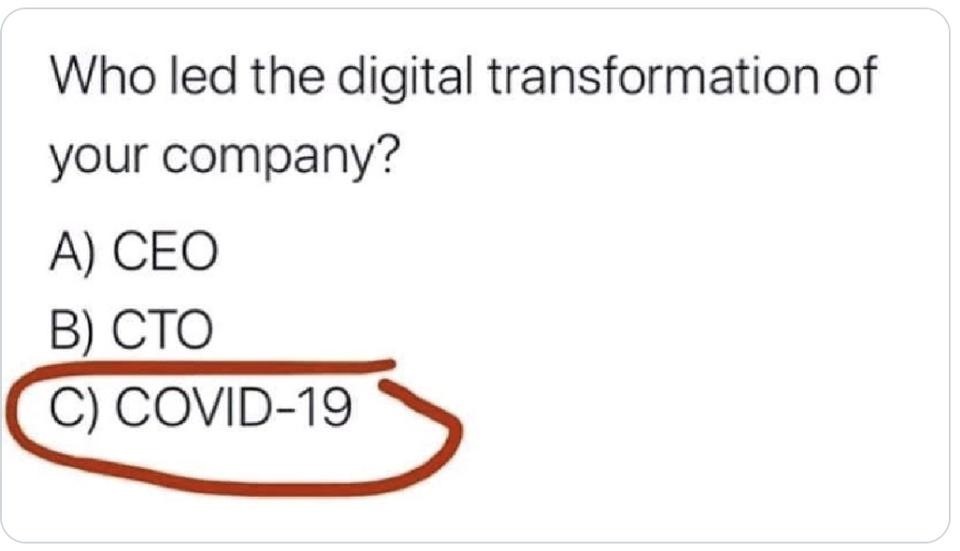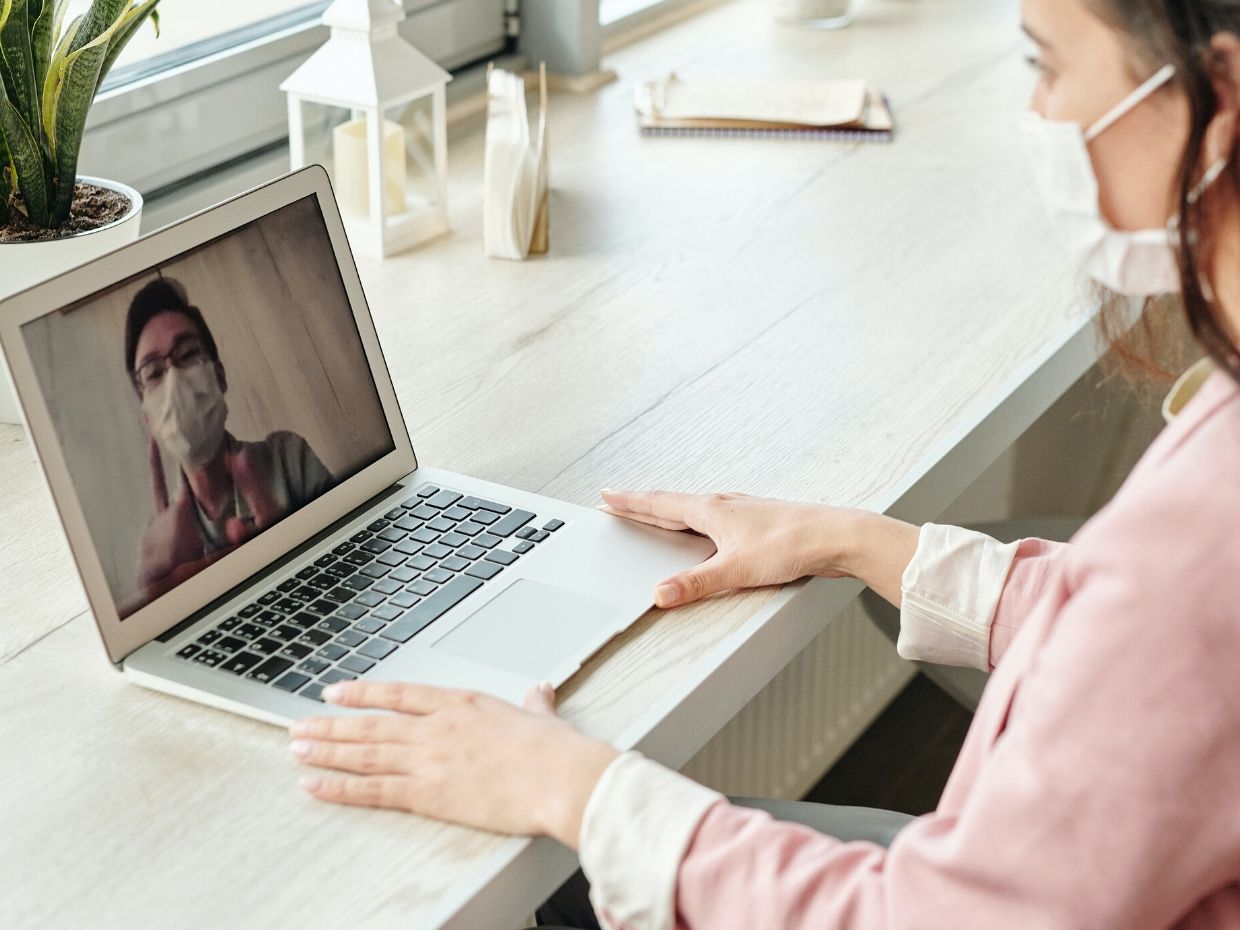How will our life look like after COVID-19? Will the way we work, and interact with one another ever go back to being the same again?
This article was written by Iker Urrutia, HR Director, Asia Pacific, Corporate Services at Sodexo, and initially published on his personal LinkedIn account.
We are in the middle of the biggest crisis we have seen in our lifetime and big crises tend to change the world, often in ways nobody predicted. In this moment, in which most of us are focused on how to survive this pandemic with the least possible damage to our health, that of our loved ones and the economy, I would like to dedicate some thoughts to what lays beyond the immediate crisis and how it will shape the world we live in.
Crises are paradigm changers and accelerators of underlying transformational processes. The world in 2021 or 2022 will be different to the one we have lived in until now and this new world will present new risks and opportunities for all. What will it look like?
Half of the world population has been on some sort of lockdown at some stage in the last couple of months and everybody who has been able to work from home, has had to do so for weeks on end. Working from home, remote working and other flexible working arrangements are here to stay. You may argue that many people have tried the experiment, did not like it and will be eager to go back to the office yearning for human contact (as someone locked-down home alone, I completely get this!), but still, I believe people will combine the two and there will be increased flexibility on where and when we work. Companies will have to adapt and probably divest property and on the number of square meters, while at the same time invest in technology and in designing their workplaces into more attractive spaces, with a bigger focus on social interaction and employee experience, so employees are enticed to go there and when they do they make the most out of their time there.
As so many people work from home, the lines between professional and personal lives are increasingly blurred, hierarchical barriers are lowered and stiff protocols softened. We are seeing our bosses’ children in the background while we are videoconferencing with them, listening to our client’s dog barking during that important negotiation call, or connecting to do some work in the night after watching Netflix and carrying out our daily workout at home. We will never see our colleagues, clients and suppliers with the same eyes again, and this is another change that is here to stay.
The joke below has been doing the rounds in LinkedIn:

With everything that is happening, it is a macabre joke, but true. Covid-19 is the main driver pushing the digital transformation agenda in companies all over the world. Brick and mortar retailers are suffering with the lockdown, whereas some e-commerce and internet companies are thriving. More food deliveries and digital payments than ever are being made as people cannot go into restaurants and do not want to touch coins and notes. If digital and new technologies were important before, they are even more so now. For companies who haven’t embraced them wholeheartedly, it may be too late already.
This includes increased automation and the use of robots to replace tasks currently carried out by humans. This process already started decades ago, but has been increasing pace in the last few years. Companies exposed to having their factories and shops closed because of the lockdown, will accelerate the adoption of these technologies even more. It is already happening. The dystopian Future of Work some people dread so much may be closer to us than what we thought. Personally, I think that as some tasks get automated many new others will be created, as has always been the case in the past. As menial, administrative and repetitive tasks are automated, employees will be able to dedicate more time to human interaction and creative tasks.
A big economic crisis has just started, a crisis that will make the Great Recession of 2008-2009 look like a walk in the park and that will be close to or even surpass the Great Depression of 1929. Governments the world over are funneling trillions of dollars into the economy, but it is still likely that we will suffer a big economic downturn that will take years to recover from. Many companies will go bankrupt and many people will lose their jobs. Due to this crisis and the increased automation, it is possible that employment will never recover the levels we are used to and more and more people will depend on subsidies from governments. Some countries are already pondering the adoption of measures such as a Universal Basic Income for all or certain eligible citizens. This might get us closer to that dystopian world in which a super-rich elite hoards most of the wealth in the world because they are the owners of the few mega-companies that have survived, while a small upper-middle class doing the mostly creative jobs that haven’t been automated yet, and the rest of humanity forming an underclass of the destitute surviving on subsidies. I think we are very far from that, if we ever get there. I prefer to think that increased automation will only improve our lives, by allowing us to dedicate our efforts to more gratifying tasks and jobs. AI will partner with us to make our work and our lives better, not replace us. There have been other big crises in history, and we have always come back stronger, changed and different, but stronger. There will be a few bumps on the road, but we’ll get there.
As argued by Yuval Noah Harari, there is the risk that some governments will present their citizens with a false dichotomy: health or privacy. "Allow us to monitor you at all times and let us conduct mass surveillance so we can control this and the next pandemics", they will say. It is a tempting choice, but it is a false one. We should keep both our health and our privacy. It is possible. Still, it is likely that in many countries privacy rights of its citizens will be more curtailed than before and that governments will make use of widespread mass surveillance and monitoring of its citizens.
Covid-19 is a global problem. It affects all countries in the world and all sorts of people: royal family members, prime ministers, CEOs, actors, workers... Global problems require global solutions, but there doesn't seem to be a coordinated global approach. Some countries are bickering and blaming each other, while others (or perhaps the same ones) are blaming global institutions for their poor response to the crisis. Many borders are closed and travelling between countries has come to a standstill. Populism and nationalism were on the raise already everywhere, but it seems this global pandemic will make us become even more parochial and inward looking. Globalization will take a step back.
How will this pandemic affect our social lives and how we interact with others? Is shaking hands and kissing on the cheeks when greeting someone definitively over? Social distancing may also be here to stay and we may never recover the levels of social closeness we had in the recent past. Or just the opposite may happen: as we are isolated at home, kept away from the people we love and appreciate, we may value even more the contact with other human beings, we may start getting closer to others and strive to achieve more meaningful real relationships with our fellow human beings. Only time will tell, but I know which option of the two I prefer.
Crises also get the best out of people and during these last few weeks we have seen people behaving like heroes in the frontline against this terrible pandemic, we have seen solidarity from all corners of the world, we have seen people sharing their skills and their art for free through the internet to help others endure a bit better the long confinement, we have seen amazing performances in balconies, we have seen people buying groceries for the elderly in their neighbourhoods… We have seen that we are still human, with our bad and good sides, but that we aren’t all that bad after all. This time of hardship has made us reflect on what we had and we now miss, to in fact value what is more important for us: family, friendship, love, personal growth, etc. I hope we bring this realization into the new world we will be building when this is over, and that this world will be built on what really is important to us.
There are no facts in the future, because the future has not yet been created, but that is fine, as that means we can still shape it and be agents and not mere passive recipients of it. This terrible pandemic is already changing the world and our lives, but we still have a say on how we would like our future world to look like. It doesn’t have to be worse than before; it can be better if we want it to be.
And you, how do you see the world changing after this crisis? How would you like it to be?

